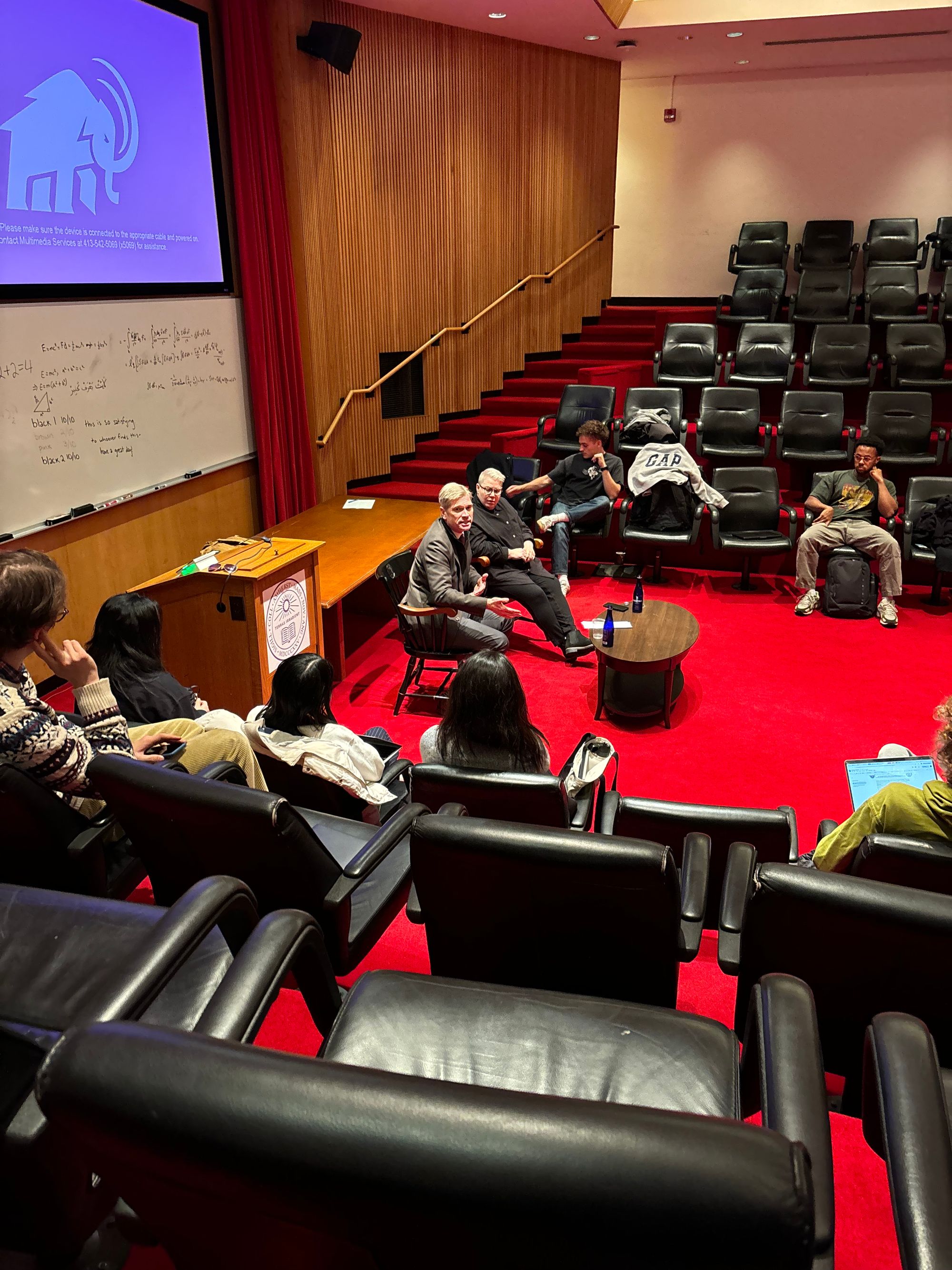Elliott and Tissi-Gassoway Field AAS Questions on Preparations for Trump’s Term

President Michael Elliott and Dean of Students Angie Tissi-Gassoway spoke at the beginning of Monday’s AAS meeting, outlining the college’s preparations for a second Donald Trump administration and taking questions from senators.
Elliott began by laying out Trump policies that could have an impact on the college and the ways the administration is preparing, reiterating much of what he told The Student in an interview last week. He broke down the potential policies into two categories: non-education-specific issues that will affect the college community, and actions aimed specifically at higher education.
The first category includes potential threats to international students and students with “fragile immigration status.” The category also encompasses the future of transgender rights, and access to abortion care.
He said the college will stand by its commitments to the students affected by these policies, and “continue to monitor” the legal landscape around abortion rights.
The second group of concerns includes plans to increase endowment taxes on elite colleges and threats to withhold accreditation or even revoke the tax-exempt status of colleges that do not agree to particular policy changes.
Above all, Elliott emphasized the instability of the moment.
“The previous Trump administration worked a lot through uncertainty and through unpredictability,” he said. “The actions that it took often did not match up with the rhetoric that it used publically and beforehand, and we don’t know if that pattern is going to continue or not.”
Elliott added that, given that uncertainty, the college would not bow to political pressure to change any policies before federal laws force it to do so.
“We don’t want to start preemptively standing down and doing things that run counter to our mission,” he said.
In her remarks, Tissi-Gassoway said that the college was more prepared for a Trump administration than it was in 2016, when his victory came as a surprise to many on campus.
“We have been working on this for a year now,” she said.
Tissi-Gassoway also said that the college now has more institutions in place to assist the international and undocumented students likely to be most affected by Trump’s policies. The Class and Access Resource Center and the Center for International Student Engagement, which were created in light of similar concerns after 2016, have prepared the college to support students over the next four years, she added.
Elliott said that the creation of the director of immigration and visa services role, which is held by Hanna Bliss, was another response to the first Trump administration. He said that assisting international students with visa issues was “the one area where I feel like we have a pretty good playbook.”
In a question and answer session, senators asked about the tangible effects of an increase to the endowment tax and the college’s plans for some of the darker scenarios that may arise during Trump’s second term.
Considering an increase in endowment taxes, Elliott assured senators that there would be no effect on the financial aid packages of any current students.
“I cannot imagine a future where the college would not honor the commitment that it’s made to students [that are here now],” he said.
He said that the college could likely absorb a moderate increase in taxes by cutting funds in other places, but that higher taxes over a long period of time would cut down on the returns to the endowment and potentially force the college to make harder decisions.
The bigger – though less likely threat – is a revocation of colleges’ tax-exempt status, which would make it “very difficult for us to continue the financial aid program that we have right now.” This was due, he said, both to the higher taxes the college would have to pay and the decrease in donations, which would no longer be tax-deductible.
Elliott said that the college was actively working to build a coalition of colleges and universities to lobby against these policies in Washington. He added that one “long-term idea” would be to “grow the size of the student body significantly to bring in more tuition revenue,” though he emphasized that this would take decades.
One other line of questioning concerned what the college would do if federal law enforcement attempts to deport the college’s undocumented students.
“I do not think it’s a high risk,” Elliott said. “But that does not mean I’m not thinking about how to respond.”
Elliott said this was partially because he thought that an enforcement effort would be less likely at a small school in a sparsely populated part of the country. Though Elliott said that the college could not prevent federal authorities from coming onto campus, he said the college would do what it could, legally, to prevent this from happening.
“Nobody is going to offer them information about who is here and their citizenship status,” he said. “They’re not allowed to come into a residence hall without a warrant naming specific people.”
Contemplating this scenario, he added that undocumented students could find support in the local community.
“This is an area where there are people who are very friendly to them,” he said.